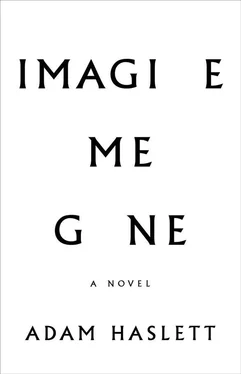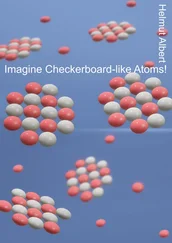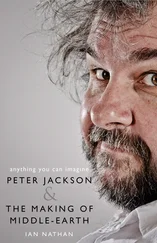I nearly punched him in the neck right then, to punish him at last for all his mockery of me. But the urge broke almost at once into sadness, a sense of the utter goneness of that time. And then that, too, faded, leaving in its wake a wholly unfamiliar gratitude. For the fact that he had been my brother, and had let me hate him. For the fact that the five of us had been a family at all. And that Michael himself wasn’t gone. He was coming back now, here with me, piece by piece.
As the drug left his system entirely, he began to hear things. He would come into the kitchen and put his ear to the speaker of the radio, bewildered to discover that it was turned off. He heard drums and synthesizers, he said, and the lyrics of entire songs. They went on for minutes at a time.
I found him in the living room examining the Mitchells’ stereo, and later watched him listening at the window for a singing he heard coming from outdoors. I told him not to worry, that it was just a phase, his mind readjusting.
Then came the sound of buses, and doors closing somewhere in the house, and loud static. He stopped sleeping altogether. I kept expecting him to rest on the couch during the day, but his pacing became more relentless. He begged off going to the gym, saying he was too fatigued, and I couldn’t contradict him.
There was no elegant way to do this. He was going to suffer.
He stayed in the living room mostly, and I stayed with him. I brought him food that he wolfed the first few bites of, as if starved, only to leave the rest untouched. More than panic, he seemed in the grip of fever. He begged me to give him back the pills. What point could there be in telling him that I had already thrown the rest away? It would only make him more frightened still.
I kept forcing him to take walks in the mornings, and again in the late afternoons, when the agitation was at its worst. I convinced him a few times to take off his hoodie and lie facedown on the couch, and for half an hour or more I rubbed his back and neck, telling him over and over to breathe. After a while his shoulder blades would unclench and his head would sink deeper into the cushion, and I’d think that he might at least doze off from exhaustion. But as soon as I stopped, he got up and paced again, asking if I heard what he heard, driven from room to room by something close to delirium.
It seemed as if whatever anxiety the drug had kept in check over the years had been stored up rather than eliminated, pooling like a dammed river in his head, and now the gates were open and the flood had arrived. There was nothing to do but wait for it to run its course. Eventually, his body had to tire.
By this time the rest of the world seemed distant. I had phoned Seth only once since our last conversation, and I’d done it in the middle of his workday, when I knew he wasn’t likely to pick up, leaving a message rather than fully accounting for myself. I’d begun to let Celia’s calls go to the answering machine, and my mother’s as well. But then one evening Celia tried the cabin number again and again until I picked up.
“You promised,” she said. “You said you’d stay in touch. Mom’s been calling me every day.”
I’d stopped giving them updates because I knew what would happen. Michael would tell them he couldn’t keep going, and not being here to understand the progress we had made, they would decide to call a halt to it. Celia would shut it down.
“There’s not a lot to report,” I said. “It’s hard. We didn’t expect it to be easy, right? But you should hear his voice. You wouldn’t believe it. He sounds ten years younger. He sounds alive.”
When she asked to talk with him I could have made an excuse. That he was in the shower, or finally getting some sleep. We had come this far. What good could there be in going backward, in losing the ground he’d suffered to gain? But I hadn’t slept much myself in the last few days, listening for him in the night, worrying as soon as I closed my eyes that the whole effort had been a mistake. At least if he spoke to Celia, the decision to keep going wouldn’t be mine alone.
I went into the living room and handed Michael the phone, thinking, This is it, we tried.
He heard Celia out on whatever she had to say for a minute or two, then replied, “I just need to sleep. That’s the thing. It’s brutal, not sleeping. But Alec’s here. He’s trying to help me.” Again he listened, and again he deflected her. “You shouldn’t worry anymore,” he said. “Any of you.”
He could have ended it right then by complaining enough to her that she would command me to stop. But he didn’t. He chose not to.
“He sounds like a wreck,” she said, once Michael had handed the phone back.
“He’s started remembering,” I replied, going upstairs, out of earshot. “You always said that’s what he needed to do, isn’t it?”
“Alec, you’re not going to solve his life for him in a month. This has to be the beginning.”
“I know. That’s what it is. But I have to see it through. Will you call Mom for me? Just tell her it’s okay, please.”
It snowed again the next morning, blanketing the road and the car and our footprints on the path. When the sky cleared and the sun came out, I told Michael we were going to walk in the opposite direction this time, away from the village.
There were only three more houses beyond the Mitchells’ along this stretch, all closed for winter, their driveways blocked by the snowbanks the plow had left behind, their yards smooth white planes sloping toward the water. We followed the road into the woods, where the sunlight barely penetrated and the quiet was nearly complete. Michael hadn’t been out of the house in two days, since he’d stopped sleeping altogether, and he seemed discombobulated by his surroundings. He neither lagged behind me nor sped ahead. Finally, his vigilance had ebbed, his attention growing softer. More than anything else, he seemed to be trying to find his bearings.
After a half mile or so, the road climbed into a rocky field that overlooked the bottom of the inlet. From here we could see across the open water to the island, a mound of dark green ringed by snow-covered boulders and a strip of granite at the waterline.
“That’s the house,” I said. “On the bluff.” I had remembered the island as being much farther out, in a great expanse of sea, but in truth the distance was only a mile or two. “Do you see it?”
Michael squinted. “Where is it?” he said.
I pointed, guiding his head. His eyes were puffy, and practically drooping shut, even out here in the cold. He’ll sleep now, I thought. I’ll give him food and hot tea, and he’ll sleep.
But he didn’t. Not that night, and not the next, and not the night after that. On his sixth sleepless night I got up in the small hours of the morning to take a piss, and as I padded toward the bathroom, I heard the back door open downstairs, and then footsteps on the kitchen floor.
“Michael?” I called.
The footsteps stopped.
“Yeah?” he said, after a moment.
“What are you doing?”
When he gave no response, I turned on the hall light and went down.
He had taken a seat in the dark at the dining room table. I switched on the lamp on the sideboard and saw in front of him a juice glass and a bottle of Scotch.
“There’s a song,” he said. “It won’t stop.”
He tore the seal, uncorked the bottle, and, using both hands to steady it, poured himself a drink.
“Where did you get that?”
“You put it in the shed.”
“But we agreed. You asked me to get rid of it.”
He lifted the glass to his lips and took a large swallow. “I didn’t mean to wake you,” he said. “You should go back to bed.”
I put on a sweatshirt that I’d left on one of the dining chairs, and sat at the table opposite him. Had he watched me take the box of booze outside? Or had he just figured I was too much of a skinflint to throw it away? It didn’t matter now. One drink wouldn’t hurt him.
Читать дальше












